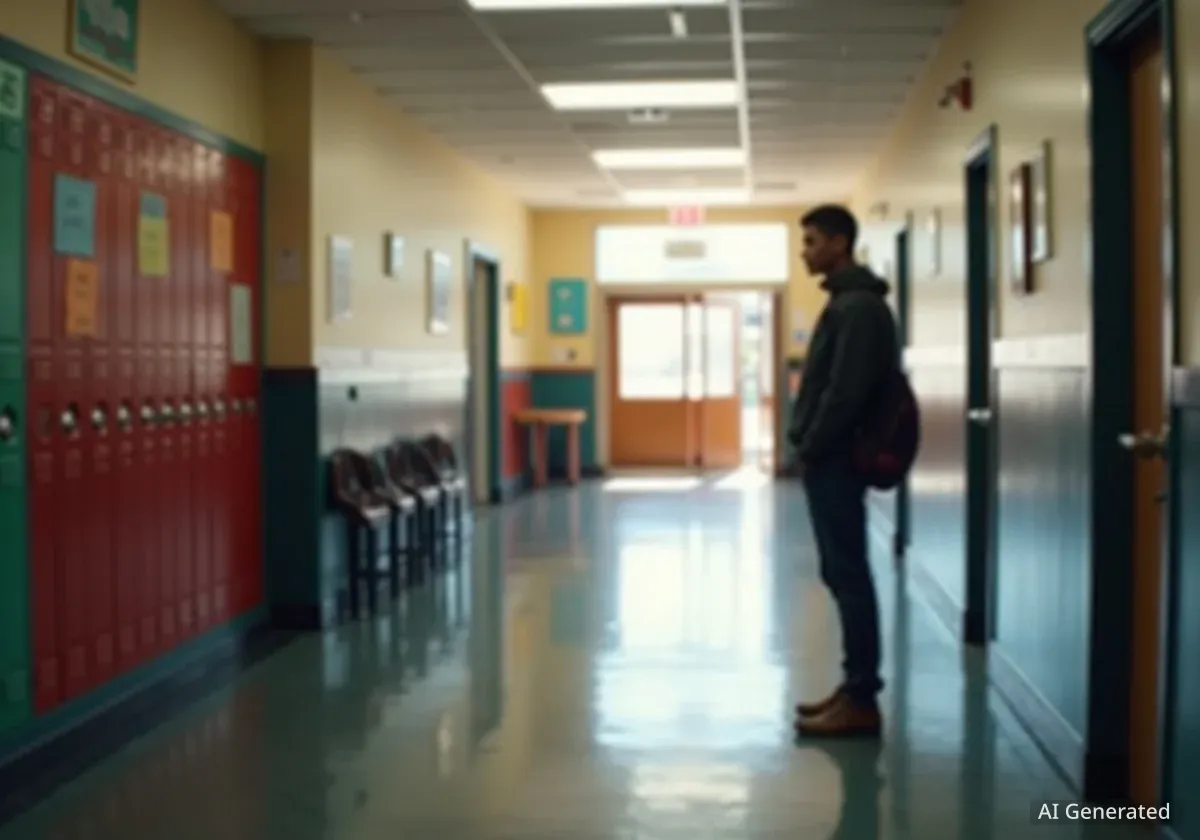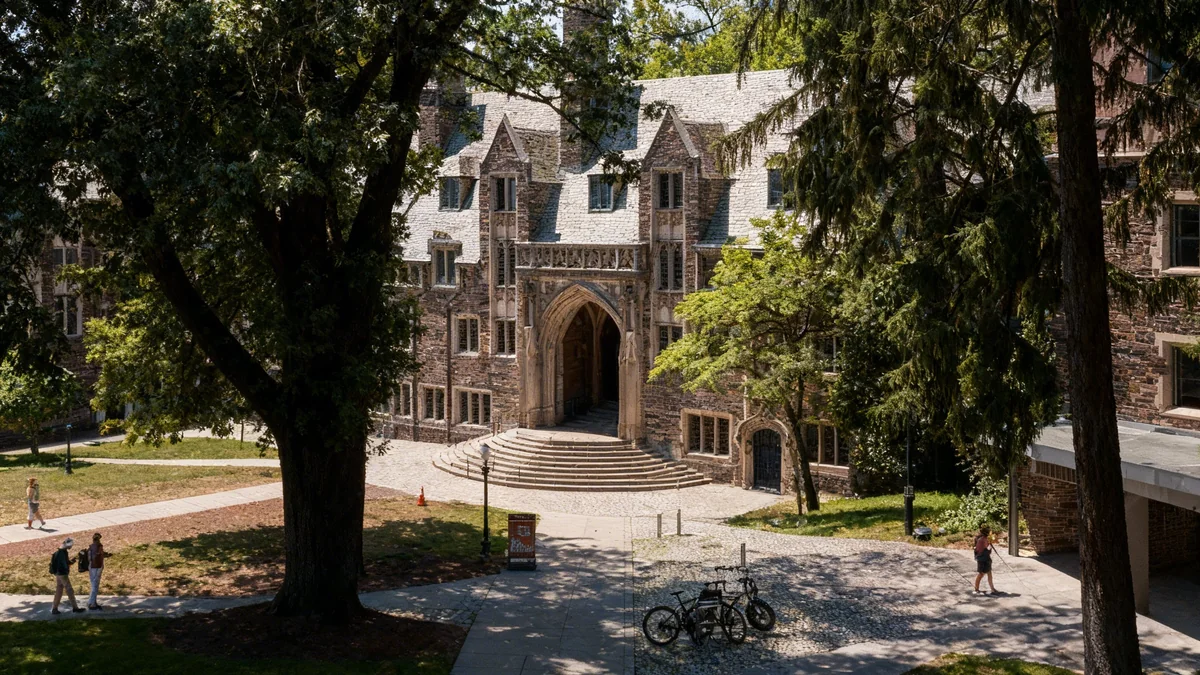California Governor Gavin Newsom has signed into law two new bills, AB 49 and SB 98, which establish strict new protections for students and families from federal immigration enforcement activities on school and university campuses. The legislation requires warrants for campus access and mandates notifications if agents are present.
Key Takeaways
- Governor Newsom signed AB 49 and SB 98 to increase protections against immigration enforcement at California schools.
- AB 49, the "Safe Haven Schools Act," requires a warrant or court order for immigration agents to enter a school campus and prohibits sharing student data without one.
- SB 98, the "SAFE Act," mandates that schools and universities notify students and staff if immigration enforcement officers are on campus.
- The laws are a response to increased federal immigration enforcement and specific incidents reported near California schools.
New Legislation Strengthens School Protections
California has implemented new statewide rules aimed at shielding educational institutions from federal immigration enforcement. The legislative package, signed by Governor Gavin Newsom, includes two distinct bills that create some of the strongest school-related immigration protections in the United States.
These laws are a direct response to a shift in federal policy and a series of incidents that have caused concern among students, parents, and educators across the state.
AB 49 The California Safe Haven Schools Act
The first bill, Assembly Bill 49, is known as the California Safe Haven Schools Act. Introduced by Assemblymember Al Muratsuchi, this law sets clear boundaries for immigration officers seeking access to school grounds.
Under AB 49, school employees are prohibited from allowing immigration agents onto campus unless the agents present a warrant or a court order. Furthermore, the law forbids schools from sharing any student information without proper legal authorization. If agents are granted access with a warrant, the school must restrict them to areas where students are not present.
"Students cannot learn or thrive if they live in fear of deportation or family separation," Muratsuchi said in a statement. "I want all of our students—but especially our immigrant students—to hear this message: you have a right to an education, and California will always stand with you."
SB 98 The SAFE Act
The second piece of legislation is Senate Bill 98, titled the Sending Alerts to Families in Education (SAFE) Act. Authored by State Senator Sasha Renée Pérez, this law focuses on communication and transparency.
The SAFE Act requires all K-12 schools and public universities to issue a notification to students and staff whenever immigration enforcement officers are present on campus. This ensures the school community is aware of the situation in real time.
As part of these new requirements, all local educational agencies must develop and submit their policies regarding immigration enforcement to the California Department of Education by March 2026.
Context: A Shift in Federal Policy
The new California laws were developed in response to the Trump administration's decision to rescind a 2011 federal policy. That earlier policy had designated schools, hospitals, and places of worship as "sensitive locations" that were generally off-limits to immigration enforcement activities. The removal of this guideline raised concerns that school campuses could become sites for immigration enforcement actions.
Incidents Prompted Legislative Action
State officials cited several concerning events as motivation for the new laws. According to the California Department of Education, immigration enforcement activities have already had a disruptive impact on schools in the state since spring 2025.
One reported incident involved federal agents detonating flashbang grenades near a Los Angeles elementary school, forcing the campus into lockdown. In another case, agents were allegedly seen urinating on a school playground during the day. Other reports include agents attempting to contact young children without a parent's permission or a warrant, and using school drop-off times to detain parents.
Impact on Student Communities
Supporters of the bills highlighted the significant number of students affected by immigration policies. For example, the Santa Clara County Office of Education, a co-sponsor of AB 49, stated that more than 165,000 students in the county live in a household with mixed immigration status.
Dr. David Toston, the Santa Clara County Superintendent, noted the widespread fear in these communities. "Our county has the largest concentration of immigrant families in California and AB 49 strengthens the protections schools have to turn away immigration enforcement," he said.
State Superintendent of Public Instruction, Tony Thurmond, echoed these sentiments. "The reckless actions of the Trump administration have sown fear and trauma throughout California school communities," Thurmond stated. "As the son and grandson of immigrants, I am proud to stand with our immigrant communities to ensure school campuses are safe and accessible to all families."
Understanding Legal Rights at School
Legal experts emphasize that schools hold a different status than public spaces like sidewalks or parks. Ritu Mahajan Estes, an attorney with the pro bono law firm Public Counsel, explained that public schools are generally considered private spaces.
This distinction is critical. "Under the Fourth Amendment, we all have a right against unreasonable searches and seizures," she said. This means law enforcement, including immigration agents, typically needs a court order or warrant to enter a private space like a school building.
Mahajan Estes noted that agents often attempt to gain access or information without a warrant because obtaining one requires probable cause. "Based on what we’re seeing, it doesn’t appear that the agents want to go through that process because they often don’t even have probable cause," she explained.
Know Your Constitutional Rights
Public Counsel has been conducting trainings to inform families and organizations of their constitutional rights when interacting with immigration enforcement. These rights apply to everyone in the country, regardless of immigration status. Key rights include:
- The right to remain silent: You do not have to answer questions from agents.
- The right to refuse entry: You can refuse to let agents into your home or a private space without a warrant.
- The right to see a warrant: You can ask an agent to show you a warrant signed by a judge.
- The right to an attorney: You can state that you wish to speak with a lawyer.
- The right to document: You can record the interaction.
"Everybody in this country, regardless of their immigration status, has rights under the constitution," Mahajan Estes affirmed. The new state laws in California aim to reinforce these rights within the educational setting, ensuring schools remain focused on learning and student well-being.





